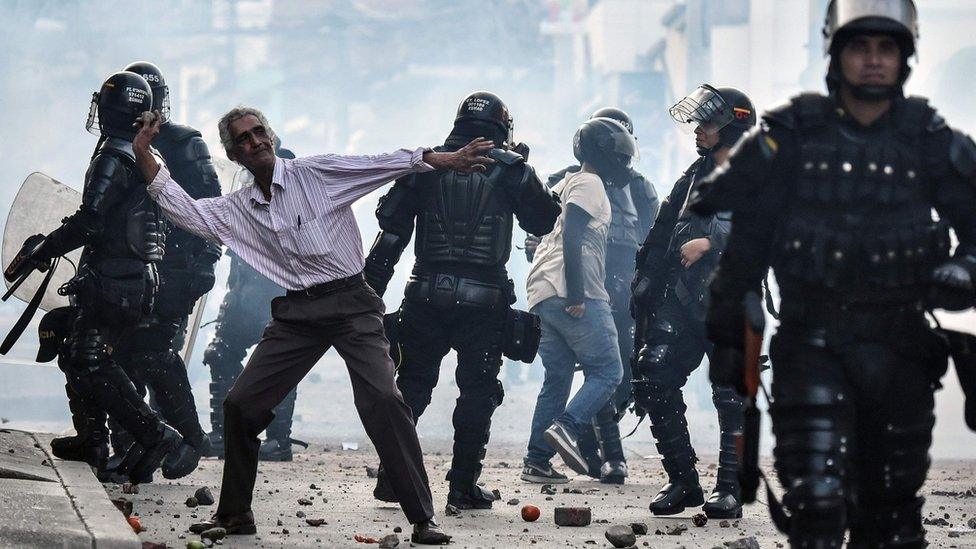Colombia's Farc suspends election campaigning over 'threats' to candidates
- Published

Presidential candidate Timochenko has had to abandon some rallies because of protesters throwing stones
The demobilised Colombian rebel group Farc says it is suspending political campaigning for upcoming elections following threats to its candidates.
Farc signed a peace deal with the government in 2016 and announced last year it was forming a political party.
However, protesters have disrupted its rallies, particularly those for leader Rodrigo Londo├▒o, known as Timochenko, who is running for president.
On Friday the party demanded "security guarantees" for its candidates.
Farc was previously known as the Revolutionary Armed Forces of Colombia and is campaigning for congressional and presidential elections under the name Revolutionary Alternative Force of the Common People, using the same acronym.
Under the terms of the peace deal, Farc is guaranteed five seats in each of the two chambers of parliament.
Vice-presidential candidate Imelda Daza told Colombia's Blu Radio that the party demanded the government provide better security to control "mobs" who were attacking and threatening Timochenko and other candidates.
Farc complained that Timochenko had faced aggressive protests and heckling in the cities of Cali, Armenia and Pereira.
Ms Daza accused rival parties of inciting the protests ahead of parliamentary elections on 11 March and the presidential elections scheduled for 27 May.
"They are not spontaneous demonstrations they are premeditated actions," she said.
Another Farc leader, Pablo Catatumbo, said talks would take place with national police. He said party leaders would meet again on Monday to "rethink strategies and analyse the situation".
Timochenko's chances of becoming president are believed to be slim
Timochenko, 59, became the leader of the Farc rebels in 2011.
Correspondents say his chances of becoming president are minimal as many Colombians are loath to see a former rebel representing them.
Many Colombians have criticised the peace process for allowing Farc members to run for office without having to serve prison time.
More than 260,000 people were killed in more than five decades of armed conflict between the Farc, government forces and right-wing paramilitaries.
- Published11 July 2017
- Published3 July 2017
- Published27 June 2017